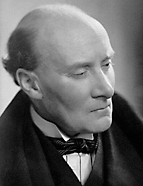

He has emphasized, moreover, that religious fervour will have been the main cause of several important journeys in what concerns geographical exploration. However, that same fervour will not have allowed the acquired knowledge to be recorded scientifically because “the chiefs cosmographies or geographies are written for religious interests, and in a religious spirit” (The Dawn…, 1897, pp. VII, 2-3). Still in this volume, mention should be made to the chapter that Beazley has devoted to the Asian regions, focusing on Chinese and Arab geographies. The second volume centres on what the British historian has named Central Middle Ages (tenth-thirteenth centuries), having highlighted the voyages of the Nordics as a prelude to the Crusades and a starting point to the commercial, territorial, and spiritual expansion of the European peoples. That expansion, and a certain supplantation of the religious reasons by commercial and political motivations, allowed Christian Europe to reassume the position which had lost to the Byzantine world, and to operate a substantial change in multiple areas. We should stress, among others, the field of Geography in which will have made a significant progress.
Although these first two volumes cover an extensive chronology, especially when compared to the third and last volume, and deal with key topics in the characterisation of the medieval period, it is precisely the latter that is of more interest for the history of the Portuguese past. Taking the outcome of the Crusades as starting point of his analysis, Beazley has turned his attention to the unfolding of the fourteenth century and the beginning of the following one, focusing, on the one hand, on the journeys of some travellers in Asian territory, and, on the other hand, on the maritime campaigns undertaken by some European nations. It is in the context of these campaigns that Portugal becomes a matter of interest to the British historian. Placing the foundation of the Portuguese navy in 1317, during the reign of King Dinis – who, together with Italian navigators, led the first expedition to the Atlantic subsidized by European states –, Beazley pointed the first Portuguese maritime adventure to 1341. What is important to note, nevertheless, about the Portuguese history in The Dawn of Modern Geography is the role that the historian attributed to the Portuguese, namely to Prince Henry, in the transition to the modern era. According to him, the Portuguese explorations under the command of Prince Henry were “the point where «medieval» expansion really becomes a part of «modern» history” (Idem, 1906, p. 541). Subsequent events to the expeditions promoted by the prince, such as the rounding of the Cape of Good Hope and the voyages of Vasco da Gama and Christopher Columbus, define an era which, in his view, is unmistakably distinct from the Middle Ages.
